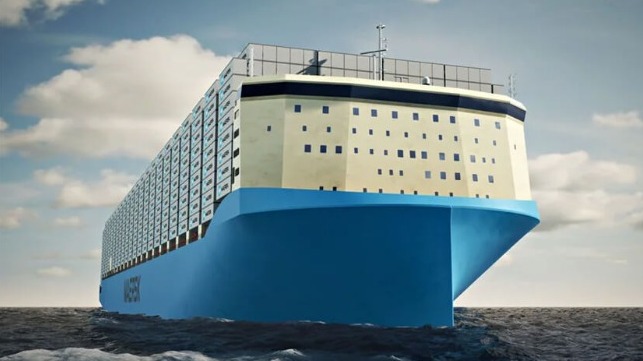Benchmark Report Finds Maersk in the Lead on Climate Action

In a new review of climate and human-rights policies at 90 global transport companies, the World Benchmarking Alliance has concluded that Maersk and MISC are leading the pack in the shipping world, thanks in part to their in-house investments in alternative fuels.
Decarbonization in shipping rests largely on the development of alternative zero-carbon fuels, like green methanol and green ammonia. Maersk's owners have launched a new research center on shipping decarbonization, and the company has committed to ordering only zero-carbon-fuel capable vessels going forward. Its next generation of ships will be equipped to run on methanol. The WBA's benchmarking system put Maersk in fifth place out of all 90 transport companies surveyed (in all sectors) and first out of 18 shipping companies surveyed.
MISC has taken a similar tack with the creation of the Castor Initiative, a novel joint project with LR, MAN Energy Solutions, Samsung Heavy Industries, Yara and the Maritime and Port Authority of Singapore. The partners are working to put the world's first ammonia-fueled tanker into service by 2025.
"However, a significant proportion of the shipping companies show no evidence of having taken any action to contribute to the development of alternative fuels, instead choosing to rely on outside actors to bring them to maturity," noted WBA. "This lack of action calls into question the credibility of many of the shipping companies’ decarbonization targets."
There are positive signs, though. More than half of the 18 shipping giants on the list have set more ambitious climate targets than IMO. These firms aim to achieve net-zero by 2050 (or sooner).

that matters most
Get the latest maritime news delivered to your inbox daily.
Maersk also topped the list of all 90 transport companies on its "social assessment" score, to include its human rights policies and its plans for a just transition.
China COSCO, the world's largest shipping company by tonnage, brought up the rear with a rank of 82 out of 90.
